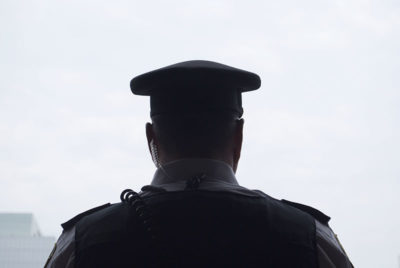 Over the past few years, preserving the mental health of police officers has become a significant priority. The impact of mental illness on law enforcement, including issues surrounding addiction, is more apparent than ever. After all, these professionals are at high risk for developing poor mental health as a direct result of the occupational culture and regular exposure to high-stress situations.
Over the past few years, preserving the mental health of police officers has become a significant priority. The impact of mental illness on law enforcement, including issues surrounding addiction, is more apparent than ever. After all, these professionals are at high risk for developing poor mental health as a direct result of the occupational culture and regular exposure to high-stress situations.
Police Officers Face an Increased Risk of Mental Health Issues
Researchers have found that due to the daily psychological stress police officers face, they remain at a higher risk for various physical and mental health complications than the general public. Some of the most commonly diagnosed mental health complications include:
- Post-traumatic stress disorder (PTSD)– Approximately 1-3 percent of the general population suffers from PTSD. In comparison, prevalence is as high as 20 percent among police officers. This is because police officers typically face repeated exposure to trauma. Unfortunately, this condition is also often accompanied by rage and alcohol abuse.
- Other trauma-related disorders — From sleep disorders to intense anxiety and depression, police officers are in danger of developing a trauma-related condition. Although all individuals are unique in terms of how they process and cope with trauma, law enforcement officers face potentially life-threatening situations.
- Substance abuse disorders — Poor mental health and substance abuse often go hand in hand, as individuals attempt to self-medicate. One study found that 11 percent of urban male officers and 16 percent of urban female officers were at risk for alcoholism.
In the same study, 23 percent of male and 25 percent of female officers reported having suicidal thoughts, while only 13.5 percent of civilians said the same. Overall, female officers working day shifts were more prone to suicide ideation and depression, whereas male officers working the afternoon or night shift were more prone to PTSD.
Once again, individuals are unique in terms of their personal well-being, coping skills, and environment. However, the link between trauma, poor mental health, and substance abuse is clear. In fact, researchers recently discovered that 42 percent of those diagnosed with PTSD also met the criteria for alcohol use disorder.
Breaking Down the Stigma of Mental Illness Among Police Officers
As more and more people become aware of the implications associated with poor mental health, a greater number of police officers share their stories. Dealing with the effects of being a police officer can be challenging, especially in terms of:
- Chronic stress — Police officers have one of the nation’s highest rates of suicide. Having to regularly evaluate and cope with complex and difficult situations often leads to increased levels of stress and, for some, diminished mental health.
- Family life — Long hours and rotating shifts cause some police officers to struggle to balance their work and home life. This can be particularly hard when officers have a spouse and/or children.
- Isolation — Although police officers often spend an immense amount of time with other officers, they may feel isolated from others in their community.
For years, police officers tried to maintain a “tough” image — even if they were struggling with their mental health. Law enforcement culture values self-reliance, strength, and competency. This ends up discouraging help-seeking behaviors when needed.
Although this associated stigma is still a major issue, it is certainly waning in recent years; today, people tend to view speaking about such issues as a sign of strength, not weakness.
By seeking assistance, police officers no longer need to suppress damaging emotions. Ignoring mental health needs is not just dangerous for their own health but also to those around them. This profession requires a clear, sound mind.
When they become more aware of the consequences of mental illness, police officers will also be able to perform their duties in a more efficient, safe manner. For example, mental illness was involved in 25 percent of police shootings in 2017. A greater understanding could improve associated responses and, in turn, save lives.
How to Seek Help
As a police officer, you are part of a complex culture, which can make asking for help challenging. In order to heal and be the best you can be (both on the job and at home), you must overcome your fears and seek assistance. There is no need to suffer in silence.
Whether you are struggling with an anxiety disorder, PTSD, substance abuse disorder, or other underlying issue, don’t face your symptoms alone. With so many treatment options available, you will benefit from a comprehensive, tailored plan that targets your unique needs.
If you are ready to begin living the life you truly deserve, contact us today. We’re here to help you — just like you help your community day in and day out.
Related: First Responder Addiction Treatment — Need for Specialized Treatment
